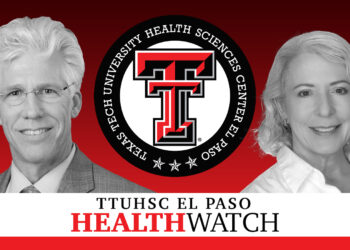Strong family ties and in-person social connections may contribute to healthy sleep in adolescents.
COVID-era survey data from nearly 5000 preteens showed that gathering around the family dinner table and participating in neighborhood activities predicted longer sleep duration, while family conflict, household distancing, and longer time spent with technology predicted shorter sleep time.
“Social connectedness is tightly linked with mental and emotional health: Healthy, regular, in-person social connections, including parental monitoring, are known to favor well-being in adolescents,” lead author Marie Gombert-Labedens, PhD, with the Biosciences Division, SRI International, Menlo Park, California, told Medscape Medical News.
“Through routine and structure, reduced conflicts and associated stress, and lower screen-related stimuli, these relationships may contribute to foster a healthy sleep environment. In parallel, adequate sleep durations allow teens to be in better mental and emotional disposition, which may also lead to positive social connections, said Gombert-Labedens.
The findings were presented on June 11 at SLEEP 2025 in Seattle.
Better Sleep, Real-Life Bonds
COVID lockdowns and distancing measures led to significant disruptions in adolescents’ social interactions, altering the quality, quantity, and type (in-person vs online) of social connections.
The pandemic also affected sleep patterns, providing a unique opportunity to examine the relationship between social connectedness and sleep, the study noted in the conference abstract.
They analyzed data from 4996 boys and girls aged 9-11 years from the Adolescent Brain Cognitive Development Study who completed at least two COVID-19 surveys — the first in May 2020 and the second in August 2020.
At both timepoints, family conflict, household distancing, and longer use of technology-mediated connections were associated with a higher probability of short sleep.
Conversely, eating dinner with family and participating in neighborhood activities predicted longer sleep.
When analyzed in clusters of social connectedness, the lowest rates of adequate sleep and the highest sadness scores were robustly found in clusters characterized by high technology-mediated relationships or by poor family/friend relationships and little parental engagement.
On the other hand, clusters characterized by high parental engagement, such as eating together and discussing plans for the following day, had significantly higher rates of adequate sleep and lower sadness scores.
The results were adjusted for potential confounding factors including sex, age, race, and household income.
Gombert-Labedens said that during adolescence, it’s especially important to keep sleep top of mind — by asking about it and, when needed, trying strategies to create a healthier sleep environment.
Social connections, within and outside of the family, may be a leverage toward better sleep, she said. This could include prioritizing in-person connections, providing routine and structure, including by monitoring and moderating technology use, and working on reducing conflicts and improving communication.
Weighing in on the research journalist Lisa Lewis, MS, author of The Sleep-Deprived Teen, said a key aspect of the study is that it measured the impact of both in-person family relationships and online friendships on sleep duration.
“The study results reinforce the importance of family connectedness — specifically, adolescents’ perceived closeness with their parents — on their sleep,” said Lewis, who wasn’t involved in the study.
“It also reinforces that online relationships, while important, simply aren’t a substitute for parental engagement and the effect it has on adolescents,” Lewis added.
Funding for the study was provided by a grant from the National Institutes of Health. Gombert-Labedens had no relevant disclosures. Lewis is the author of The Sleep-Deprived Teen.
Source link : https://www.medscape.com/viewarticle/family-dinners-stronger-social-ties-boost-teen-sleep-2025a1000ft2?src=rss
Author :
Publish date : 2025-06-12 13:07:00
Copyright for syndicated content belongs to the linked Source.








